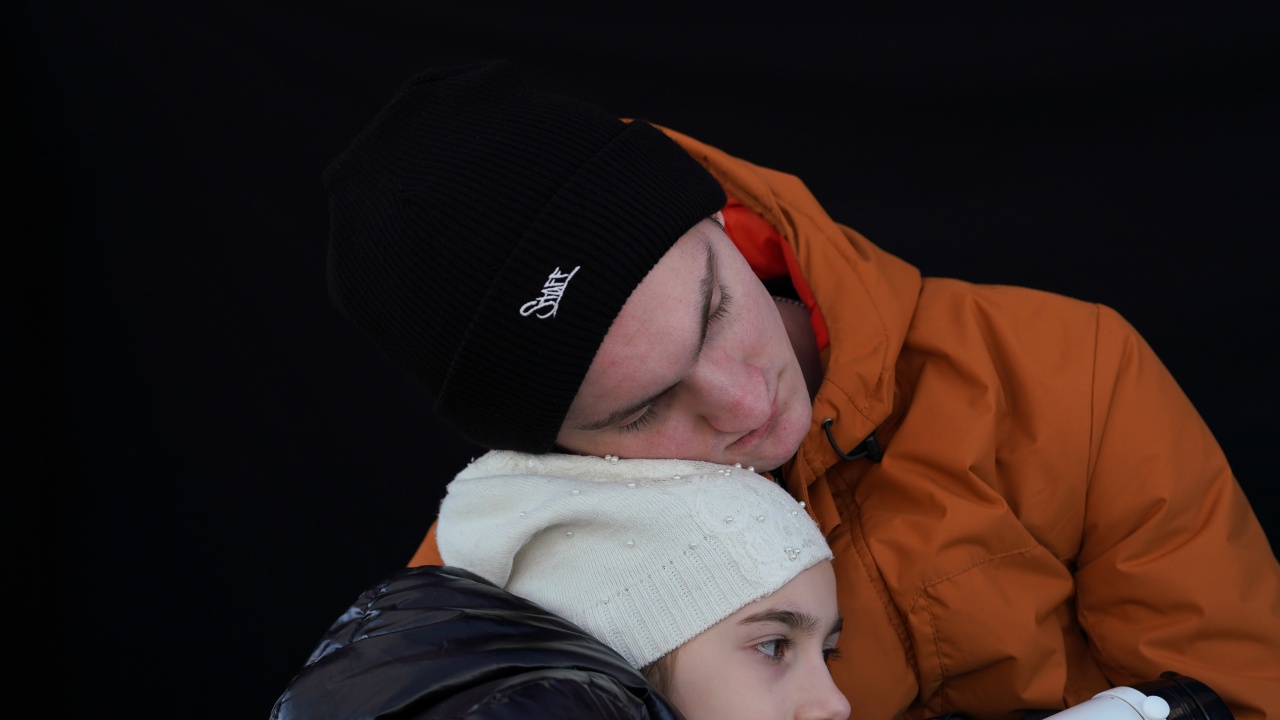Listen to the news
The UN commission of inquiry called the removal of Ukrainian children from Russia to its territory a war crime. The report published on Thursday by the commission, which has been working in Ukraine for several months, emphasizes that international humanitarian law prohibits - with some rare exceptions - the evacuation of children from a country in armed conflict.
All about the topic:
Russian invasion of Ukraine 9852
The head of the commission, Norwegian judge Erik Møse, said at a press conference that he and his colleagues had studied in detail the cases of 164 children between the ages of 4 and 18 taken from Donetsk, Kharkiv and Kherson regions.
As the committee members wrote in their report, these children themselves and their parents stated that Russian social services had told the children that they would be given to Russian families, and that the Ukrainian children "expressed the most serious concerns" that they would be separated from their families forever.
Ukrainian authorities estimate that the Russians have taken 1,621 Ukrainian children out of the country as of February (the UN commission says it cannot confirm this figure).
Ukraine has repeatedly called this a crime and is demanding the return of the children.
UN: Russian army has committed many war crimes in Ukraine
Russian officials speak proudly of taking the children out of Ukraine and "re-educating" them in love for Russia.
They are taught to love Russia
Russia's child rights ombudsman, Maria Lvova-Belova, announced last year that she herself had adopted a child from Mariupol, a city bombed by the Russians, and later in September said that the children there were successfully learning to love Russia.
"When we took them to the territory of the Moscow region to recover a little, it started to be said that they were talking negatively about President Putin, saying all kinds of nasty things, singing the Ukrainian national anthem, 'Glory to Ukraine' and everything else," said L' vova-Belova in front of the Public Palace.
"So yes, there is some negativity, maybe at first, but then it transforms into love for Russia."
"The illegal deportation of Ukrainian children to the Russian Federation is presented by the Russians as a noble act of saving children," Ukraine's ombudsman Dmitry Lyubinets said last year, saying international law qualifies the forcible transfer of children from one national group to another as genocide.
Genocide?
Ukrainian authorities often call Russia's actions genocide, but according to Eric Möse, the UN Commission of Inquiry has found no credible evidence of a genocidal policy in the strict legal sense in Russia's actions in Ukraine.
"We do not find that there was genocide in Ukraine. However, of course, we follow any evidence in this regard and note that in some aspects there may be questions about this type of crime. For example, the statements in the Russian media against groups of the Ukrainian population . But we haven't come to any conclusion yet. We will continue our work," said Eric Möse.
In addition to child abduction, the commission is investigating all allegations against Russia in connection with the war in Ukraine.
"The Commission concluded that the Russian authorities committed numerous violations of international humanitarian law and international human rights law, in addition to a wide range of war crimes, including war crimes in the form of accidental death, injury or damage, intentional murder, torture, inhuman treatment, illegal imprisonment, rape and illegal transfer and deportation," said Eric Möse.
The report notes in particular that the Russian military and other security forces systematically and widely practice torture, including electric shocks on the genitals, hanging by the hands, suffocation with a plastic bag over the head, etc., and rape, which all they can be classified as crimes against humanity.
Although the report was released on the anniversary of the Russian bombing of the theater in Mariupol, where civilians were hiding, commission members failed to determine whether what happened there last spring was a crime against humanity.
The report explains that the members of the commission were not allowed into the Russian-occupied part of the Donetsk region, including Mariupol, without which the commission cannot make legally sound conclusions.
The Independent International Commission of Inquiry on Ukraine was established in March last year, days after Russia's attack on Ukraine, by the UN Human Rights Council.
Its members include the former judge of the International Criminal Tribunal for Rwanda, the Supreme Court of Norway and the European Court of Human Rights Erik Möse, the Bosnian judge Jasminka Dzumhur and the Colombian human rights activist Pablo de Greif.
In October, the commission published its first report, which examined the events in the northern regions of Ukraine - Kyiv, Chernihiv, Sumy and Kharkiv - during the Russian occupation.
The commission concluded that the vast majority of humanitarian law violations, including war crimes, that occurred in the region during this period were committed by the Russian military and occupation authorities, but that the Ukrainian military also violated human rights and humanitarian law in some cases and committed war crimes on two occasions.
Russian invasion of Ukraine
military crimes
Russia-Ukraine war
